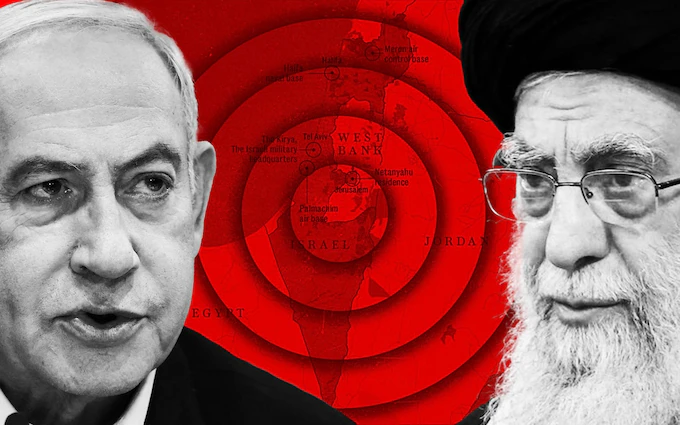The unprecedented assault launched by Iran against Israel early on Sunday escalated regional tensions, validating longstanding concerns about the Israel-Hamas conflict potentially expanding into a wider crisis.
However, Iran, Israel and Hamas all emerged with certain advantages. Here’s an examination of the aftermath.

Iran shows off its might :
Iran consistently pledged to retaliate against an alleged Israeli attack on an Iranian diplomatic facility in Damascus on April 1, resulting in the deaths of two generals. The assault on Sunday provided Iran with an opportunity to demonstrate to its citizens its resolve not to tolerate attacks on its assets, affirming its commitment to follow through on its revenge threats.
With its strike, Iran was able to exhibit its fierce firepower, instill fear in some Israelis and disrupt the lives of many through school cancellations. But with little damage actually caused in Israel, Iran might hope that any response will be measured. Several hours after it launched the drones and missiles, Iran said the operation was over.
Hamas may benefit from Iran’s direct involvement
Since initiating its attack on October 7th, Hamas had hoped for support from regional allies to draw Israel into a broader conflict. While some, such as the Hezbollah in Lebanon and Yemen’s Houthis, have joined, Iran had not directly intervened until Sunday.
Hamas could anticipate that the strike marks the beginning of increased Iranian involvement in the Gaza conflict. Additionally, it could foresee escalating violence in the West Bank, where an Israeli teenager was killed and settlers conducted raids in Palestinian towns.
At the very least, Iran’s attack may have encouraged Hamas to take a more entrenched stance in ongoing ceasefire negotiations, hoping that heightened military pressure on Israel would compel it to accept the militant group’s more stringent terms for an agreement.
Israel’s response could restore faith in its military
Israel’s military reaction has the potential to instill confidence in its capabilities. When over 300 drones and missiles approached Israel early Sunday, the nation effectively evaluated its aerial defense system, supported by allies, thwarting 99% of the threats and averting significant harm.
Israel has also boasted about the coalition of forces that helped it repel the Iranian assault. It is a much-needed show of support at a time when Israel is at its most isolated because of concerns surrounding its conduct during the war against Hamas, including a worsening humanitarian crisis and a staggering death toll in Gaza.
However Israeli cabinett is splitted over retaliation on Iran’s assault.
Tehran also warns Washington any support for Israeli retaliation will result in targeting of US bases
Meanwhile Iran warned Israel against retaliating to Tehran’s recent drone and missile strike, warning of a significant escalation in response. Iranian armed forces chief of staff Major General Mohammad Bagheri stated on state TV that any Israeli retaliation would be met with a much larger military response from Iran.
Additionally, Tehran has cautioned Washington against supporting Israeli military actions, threatening to target US bases if such support is provided. Hossein Salami, commander of the Islamic Revolutionary Guard Corps, also issued a warning, stating that Tehran would retaliate against any Israeli attack on Iranian government, people, or interests.


